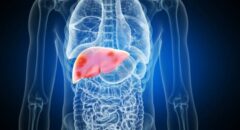
If you’re planning to have a family while living with chronic liver disease, there’s a lot you need to know. While it’s not impossible to have a healthy pregnancy, there may be a few obstacles along the way. As you work with your doctor, you can manage your condition and have the family you desire.
How Chronic Liver Disease Affects Pregnancy
The liver plays an important role in regulating many of the body’s systems so it’s understandable that having chronic liver disease can throw things out of whack.
One thing the liver is involved in is the metabolism of hormones such as estrogen and progesterone. When your liver is damaged, your hormone levels might not be ideal for conceiving or maintaining a healthy pregnancy. In fact, a lot of women with chronic liver disease have trouble getting pregnant, and up to 20 percent of those who conceive suffer from a miscarriage, a premature birth, or a stillbirth.
Additionally, being pregnant can affect your liver negatively. While studies show that pregnancy generally doesn’t make your liver disease worse, it can throw off some of your readings.
RELATED: Natural Support for Black Patients with Chronic Liver Disease
How Your Pregnancy Will Be Monitored
Apart from the common checks that are associated with pregnancy, your doctor will likely need to regularly monitor your liver function. Sometimes, pregnant women experience declining liver function as well as an increased risk of jaundice.
There are also rare situations where you can develop swelling in the brain. It’s further recommended that you do an endoscopy during the three trimesters of your pregnancy. This test checks for the presence of esophageal varices, which can occur during chronic liver disease and can be worsened during pregnancy because of the increased blood flow.
If the varices aren’t identified and treated, you run the risk of internal bleeding if they burst. This is a particular concern if they burst during childbirth.
In addition, your doctor may need to monitor your baby more closely. Since your liver function is compromised, it will be essential to ensure that this isn’t impacting your baby’s development.
It’s usually safe to keep taking your medication but your doctor will let you know if there’s anything you need to pay attention to while pregnant.
Your Follow-Up Care After Childbirth
After having your baby, both of you will need to be assessed on a scheduled basis. For you, the doctor will likely need to keep checking your liver function and the development of varices.
It’s important to note that in rare cases, some people have needed a liver transplant after giving birth. On the other hand, the doctor will need to check your baby for low blood sugar and an abnormal heart rate as these are possible side effects of medications you may take while pregnant.
Why You Need To Talk To Your Doctor
As you may have realized, it can be difficult to get pregnant and have a healthy baby when you have chronic liver disease. A lot of steps need to go into getting you pregnant and helping you stay that way. That’s why you need to talk to your doctor quickly if you’re trying to conceive or determine if you’re pregnant. There are tests that your doctor will need to carry out to see if you’re in the right place to have a healthy pregnancy. You also need to let your doctor know how long you’ve been trying to conceive, if you’ve been pregnant before, and what the outcomes of those pregnancies were.
It might not be an easy road to having a family when you’re dealing with chronic liver disease. However, with proper care from your doctor, it can be done. It’s important to stick to the schedule of doctor visits and tests throughout the entire pregnancy. By doing that you and your baby can be healthy.








